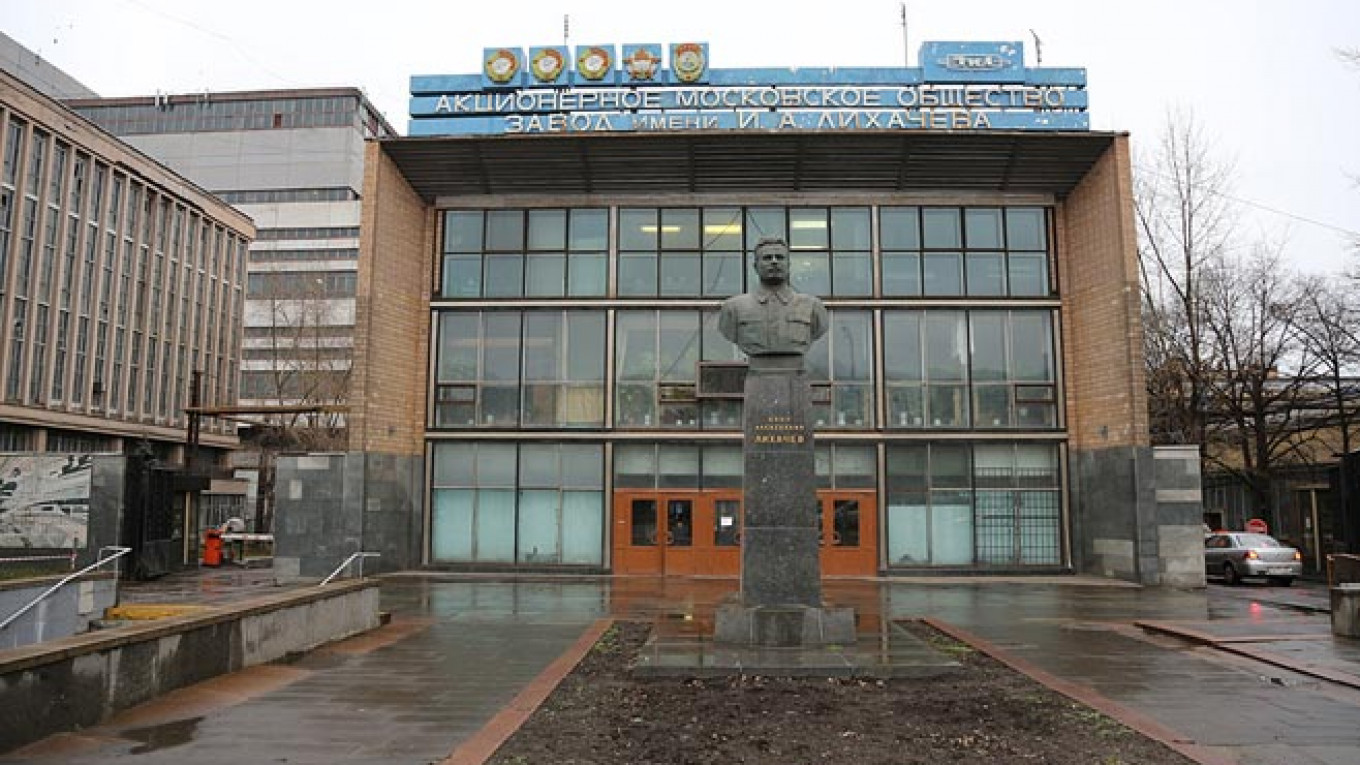As the redevelopment of Moscow's three biggest and largely defunct industrial zones gears up to begin, City Hall is nursing plans for the process to help alleviate the capital's traffic jams.
Moscow's 209 industrial zones cover 7,800 hectares of land, but only 52 percent of this territory is used for industrial purposes, according to City Hall. Some of the remaining space is used to house offices. Much is dormant.
Now, the city's government is in the final stages of organizing tenders to select companies to revamp the former ZIL automobile factory in southeastern Moscow, the metallurgical complex Serp i Molot — or Hammer and Sickle — in the eastern part of the city and the industrial zone of Yuzhny Port in the southeastern part of the capital.
Mayor Sergei Sobyanin's team has implemented a new policy toward developers. He suspended big projects, some of which could create new transportation problems. In a recent interview given to Kommersant, Sobyanin's deputy Marat Khusnullin said there would be no more chaos in the development projects and the city government would work together with developers in solving transportation issues.
The biggest failure in recent years was the Moscow-City district, which Sobyanin branded "a mistake." The project was supposed to become a business center with skyscrapers bustling with company offices. So far it has failed to become a business hub because of its remote location and complicated transportation junctions. Besides, some of the buildings in the center are still under construction. The construction of two more 66-story skyscrapers was announced Monday.
According to Moscow government officials, the former ZIL factory project will not fall into the same trap as Moscow-City, as the development of the zone will be multifunctional and will be accompanied by creating new train and metro stations nearby.
"The only way to avoid transportation problems when revamping industrial zones is to use mixed-development, which means creating both apartment blocks and offices, generating working places for the people, so that they do not need to travel too far to their work," said Mikhail Blinkin, director of the Institute of Transport Economy and Transport Policy at Moscow's Higher School of Economics. He also added that the problem of Moscow-City can be solved by creating a better public transportation system and limiting access to the area by car.
Despite a sharp slowdown in Russia's economy last year, the real estate market has stayed buoyant. Investments in business centers, malls and warehouses reached $8.3 billion, which was a record in the whole history of Russian commercial real estate market.
Contact the author at [email protected]
A Message from The Moscow Times:
Dear readers,
We are facing unprecedented challenges. Russia's Prosecutor General's Office has designated The Moscow Times as an "undesirable" organization, criminalizing our work and putting our staff at risk of prosecution. This follows our earlier unjust labeling as a "foreign agent."
These actions are direct attempts to silence independent journalism in Russia. The authorities claim our work "discredits the decisions of the Russian leadership." We see things differently: we strive to provide accurate, unbiased reporting on Russia.
We, the journalists of The Moscow Times, refuse to be silenced. But to continue our work, we need your help.
Your support, no matter how small, makes a world of difference. If you can, please support us monthly starting from just $2. It's quick to set up, and every contribution makes a significant impact.
By supporting The Moscow Times, you're defending open, independent journalism in the face of repression. Thank you for standing with us.
Remind me later.






